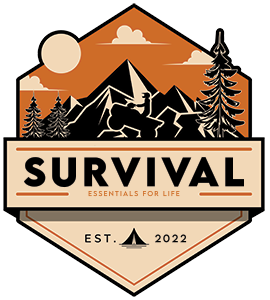A generator can make all the difference when dealing with the aftermath of storm damage, a faulty power grid, or a national emergency. As outages increase over the decades, generators are gaining popularity, allowing people to keep their houses at an acceptable temperature and their food fresh. Because they’re so popular, the market is flooded with options. Here are the three most important factors you need to consider before buying one.
Power priorities
Your power priorities are the systems within your house that must remain on, such as your heating and cooling systems, your refrigerator, your lights, and any other crucial electrical items. For some, power can be life or death if they have a medical condition that requires a machine to manage. For others, a deep freezer might hold a year’s worth of food they’ve carefully budgeted for and cannot afford to lose. Your first priority is determining how much power each item will need and base your generator purchase on this capacity. You can search your brand model online to get the correct wattage or check the label on the side/back. You don’t want to purchase a generator and then have to choose between essential appliances because it can’t handle the power load.
Generator type
There are four main types of generators prevalent on the market. A home-standby generator is one that automatically turns on when the external power supply shuts down and they are permanently installed within your home. They run with natural gas or propane and supply the most power out of all the options. Inverter generators and portable generators, on the other hand, are ones you take with you, and they come in various sizes. Some are perfect for camping, while others can be used to power a house or an RV. The downside is that they normally use gasoline and don’t have large fuel reserves, so you’ll need extra storage space for surplus gas. They also cannot be used inside as they quickly fill an enclosed space with dangerous levels of carbon monoxide. A quick note: of the four listed above, inverters are the most efficient of the bunch as they are redesigned to only supply the exact amount of power you need at any given time. Still, they aren’t made for long-term use.
Fuel type
The fuel type is another important consideration, especially if you’re buying the generator specifically for emergency purchases. It all comes down to access and availability. Unless your generator is solar-powered, you’ll most likely choose between gasoline, diesel, propane, or natural gas. There are upsides and downsides to each one. For instance, gasoline is relatively easy to acquire, but it can become unreasonably pricey and sell out during an emergency. Not only that, but most states have regulations on how much you can store, often capping it at 25 gallons (that’s two to three days worth) unless you’re a certified farmer. Even worse, it doesn’t have the best shelf life. You’ll need to replace it yearly.
Diesel, on the other hand, has the highest power capabilities per gallon, but most diesel generators only hold enough fuel for one day. Still, it has a longer shelf life than gasoline, and you can safely store it. As for natural gas and propane, they are incredibly effective, but supply disruptions are a serious issue. Natural gas runs through company gas lines, so you don’t have to worry about stockpiling it. However, if that line is disrupted, you’re out of luck.
Out of the four fuel types, propane is the best solution for long-term use. In fact, many people use it as their primary power source if they live off the grid. Your supply won’t go bad, but it will be dependent on your capacity. You can purchase propane tanks anywhere from 20 gallons to thousands. The downside is that you’ll have to get a supplier to come to you to fill your tank, and tanks cannot be filled to capacity without endangering your surroundings.
Other factors
There are several other factors to consider, such as starting process, noise level, safety features, and price. Start with the three listed above and whittle your options down from there, then carefully read consumer reports and customer reviews to make sure you’re getting exactly what you need. Good luck!
